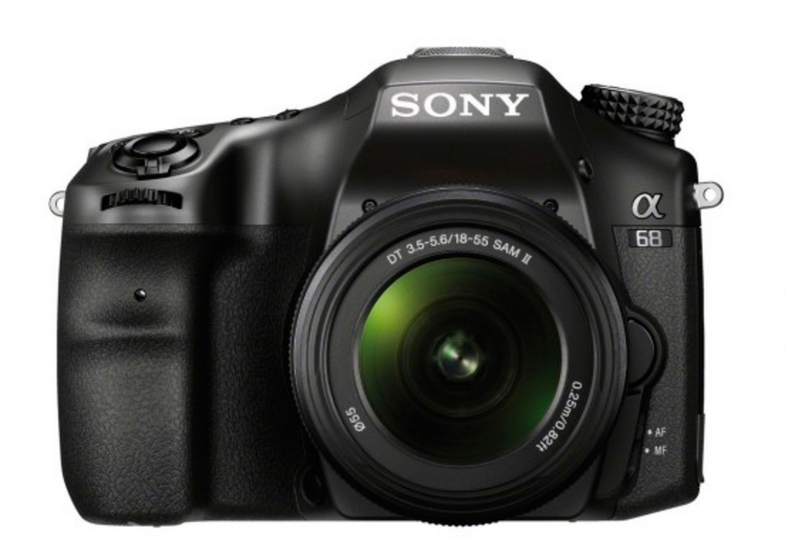Sony Announces A68 Translucent Mirror Camera With “4D Focusing” In Europe [Now in America!]
No US release is slated for Sony's latest fixed-mirror camera

We may earn revenue from the products available on this page and participate in affiliate programs. Learn more ›

[UPDATE: As of December 17th 2015, the A68 will also be officially available in the US and Canada. Here’s the official pricing info: The Sony α68 interchangeable lens camera will be available in April at authorized Sony retailers in the US for about $600 body only or about $700 in a kit along with the DT 18-55mm F3.5-5.6 SAM II lens. In Canada, the body and kit will also be available in April and will be sold for about $800 and $950 CAD, respectively.]
For a while now, it has been the mirrorless cameras in the spotlight in the Sony cameras lineup. The A-series does live on, however, and today Sony Europe announced the A68 camera with a trailscent mirror. There’s no official word from Sony on plans for a US release (we asked), but it’s still a fairly interesting development.
The big new addition in the A68 is what Sony is calling 4D focusing, which they claim can operate continuously while shooting up to 8 fps, even in low-light situations. Sony hasn’t exactly been slacking off in terms of AF performance in any of their cameras recently, so I suspect that won’t change here. The phase detection AF system has 79 individual points.
The camera itself is built around a very familiar 24-megapixel APS-C sensor and uses an electronic viewfinder in conjunction with a stationary pellicle mirror for composing and reviewing shots. The back of the camera has a 2.7-inch TFT LCD screen that tilts both up and down.
The A68 has an ISO range of 100-25,600 and is, of course, compatible with all of the existing A-mount lenses.
When it goes on sale overseas, it will cost 600 Euro, which is about what you would probably expect for a relatively entry-level, DSLR-style camera.
It will be interesting to see if the A68 makes its way over to the states eventually. Beyond that, it will be interesting to see what the future of the fixed-mirror cameras holds.